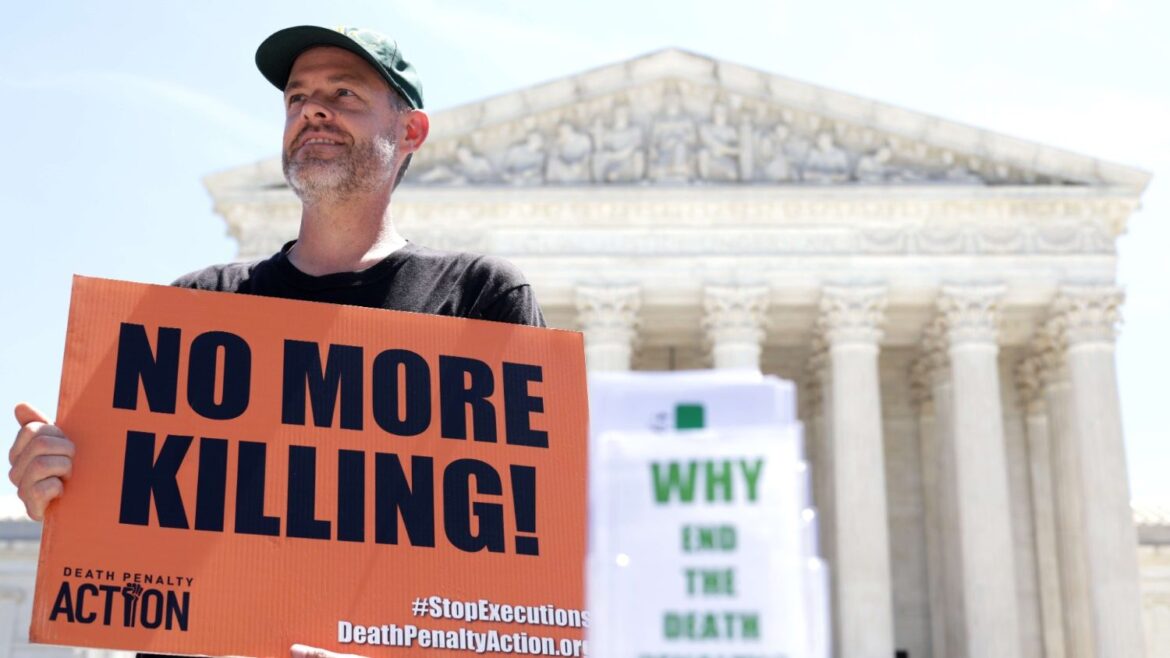
On the World Day Against the Death Penalty, Krisanne Vaillancourt Murphy, Executive Director of the US-based Catholic Mobilizing Network, explores the many positive movements that have been made to abolish the death penalty, despite an uptick in executions this year.
By Francesca Sabatinelli
By 2024, more than two-thirds of countries had abolished the death penalty—145 nations have now eliminated it either in law or in practice.
Despite this progress, the number of executions recorded worldwide has increased, reaching 1,518 in 2024—the highest figure since 2015.
Countries such as China, Iran, Saudi Arabia, Iraq, and the United States account for the vast majority of these executions.
The World Day Against the Death Penalty, marked annually on October 10, offers an opportunity to assess the progress made in the global effort to end executions.
“In the United States,” explained Krisanne Vaillancourt Murphy, Executive Director of Catholic Mobilizing Network (CMN)—an organization working across the U.S. to raise awareness against capital punishment—“we’re in the middle of the effort to end the death penalty.”
“About half of the states in the United States have the death penalty, and about half of them have repealed the death penalty and taken it off the books,” she said. “We are in the middle of, unfortunately, many executions right now in the United States. There’s been somewhat of an uptick of executions and a regression. The political rhetoric of this time is difficult. We need to value the dignity of every human person. That includes people who are sitting on death row. So we will not give up this fight. And the progress that we’ve made has been hard won. We will move forward and continue in order to end the death penalty in the United States.”
Even on Friday, October 10, an execution is scheduled to take place in the US state of Indiana.
October is observed in the United States as “Respect Life Month,” calling Catholics to recommit themselves to respect the God-given dignity of all human life, from conception to natural death.
Nevertheless, said Ms. Vaillancourt Murphy, “we see an uptick in executions in this month of October—eight are scheduled.”
“It’s a stark contrast to honoring all human life that we see such an affront to the dignity of the human person,” she said. “There is not silence. The Church has many challenging issues to attend to right now, but that doesn’t dismiss or demote this issue of human life, which is ending capital punishment.”
The Church, beginning with the bishops of Florida—the state that has recorded the highest number of executions this year—has long made its opposition clear.
“We see Bishops in the United States, for example, in the state of Florida that has the majority of executions this year so far; we see a unified front to oppose executions,” said Ms. Vaillancourt Murphy. “We see people calling on the governor to commute or to offer clemency. We see much attention in the Church about this issue.”
She pointed to the progress achieved over the past 15 to 20 years, which has seen the number of annual executions cut in half—a success not only in the United States but also in other countries.
“American society is becoming less tolerant of the death penalty. And so we are encouraged by this. Now, it is true that we see an uptick in executions right now,” she said. “But I think the trends are still moving in our favor.”
A recent Gallup poll supports Ms. Vaillancourt Murphy’s optimism, showing that public support for the death penalty in the US is at its lowest point since the 1970s.
“We see this right now, this episodic uptick, and it’s concerning,” she said. “We continue to fight it, but I think we know that that’s going to be par for the course along the way. There will be ebbs and flows as we move the death penalty to its final closure.”
The Director of the Catholic Mobilizing Network also reflected on “the forceful and bold rhetoric” of the current Trump administration, which she said “made very clear in its last term its eagerness to pursue death sentences and executions at the federal level.”
She said there has also been a countervailing trend that favors abolitionists, including an increase in both commutations and exonerations, calling them “an encouragement for abolition.”
Even so, she acknowledged that “this is a very challenging moment for the United States.”
“I think that this is a moment of reckoning where the people of the United States need to continue to voice their will about wanting to end the death penalty very clearly,” she said. “Courage is visible in the United States when we see the death penalty is no longer a partisan issue. Both sides of the aisle, as we say, are starting to understand that this is a life issue and that this is an issue that we need to pursue. So, it’s no longer owned by one party or considered just progressive or liberal. It’s truly something that’s much more universally accepted.”
Ms. Vaillancourt Murphy invited everyone to look to the courage of the Bishops of Florida, who called for a novena because of the uptick in executions.
“We see that in states like Texas also, where there are a number of executions. We see a unified call of the Bishops of that state against the death penalty,” she concluded. “We saw the Holy Father recently speaking about the death penalty and lifting it up as a life issue. So I do think we’re seeing courageous actions.”

